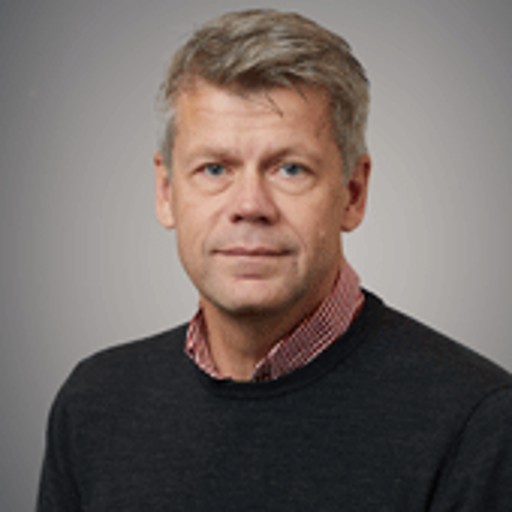Course syllabus adopted 2019-02-15 by Head of Programme (or corresponding).
Overview
- Swedish nameTeknisk geologi
- CodeBOM200
- Credits6 Credits
- OwnerTKSAM
- Education cycleFirst-cycle
- Main field of studyCivil and Environmental Engineering
- ThemeEnvironment 1 c
- DepartmentARCHITECTURE AND CIVIL ENGINEERING
- GradingTH - Pass with distinction (5), Pass with credit (4), Pass (3), Fail
Course round 1
- Teaching language Swedish
- Application code 58135
- Open for exchange studentsNo
- Only students with the course round in the programme overview.
Credit distribution
Module | Sp1 | Sp2 | Sp3 | Sp4 | Summer | Not Sp | Examination dates |
|---|---|---|---|---|---|---|---|
| 0115 Project 2 c Grading: UG | 2 c | ||||||
| 0215 Examination 4 c Grading: TH | 4 c |
|
In programmes
- TISAM - CIVIL AND ENVIRONMENTAL ENGINEERING, Year 1 (compulsory)
- TKSAM - CIVIL ENGINEERING, Year 1 (compulsory)
Examiner
 Lars Rosen
Lars Rosen- Full Professor, Geology and Geotechnics, Architecture and Civil Engineering
Eligibility
General entry requirements for bachelor's level (first cycle)Applicants enrolled in a programme at Chalmers where the course is included in the study programme are exempted from fulfilling the requirements above.
Specific entry requirements
The same as for the programme that owns the course.Applicants enrolled in a programme at Chalmers where the course is included in the study programme are exempted from fulfilling the requirements above.
Course specific prerequisites
Building materials, Physics and chemistry for civil engineers, Urban space and functions, Introductory course in calculus, Linear algebraAim
The aim is to provide basic theory on properties and functions of common geological materials with respect to building, construction and different supply systems in society. Further, the aim is to provide knowledge on important aspects on the use of geological resources with respect to sustainable development.Learning outcomes (after completion of the course the student should be able to)
Content
The course deals with the fundamentals of geological processes, application of geological skills in building, construction, water supply, remediation of contaminated land and groundwater, and sustainable use of geologic natural resources in society. Important parts of the course are field studies, laboratory work and exercises. The field and laboratory works are parts of the learning sequence Scientific Approach: measurement technique and laboratory work. The course is a natural part and link of the learning sequences Scientific foundations and Sustainable development.Organisation
The course includes lectures, exercises, laboratory work, individual and groupwise project assignments, and field work. During the first part of the course lectures are alternated with laborations and exercises. Laborations and exercises are mandatory and skills are tested by dugga. During the second part of the course there are four days of mandatory fieldwork. During the fieldwork mappings are performed of rocks, unconsolidated deposits, fracture systems in rocks, and groundwater conditions. Fieldwork is performed in groups and includes a field report with presentation of results from mappings.Literature
Geobiosfären - en introduktion, Red Per-Gunnar Andréasson, Studentlitteratur.Examination including compulsory elements
Examination is through individual written exam, dugga and mandatory laborations, exercises and fieldwork. To write a written exam the student must have participated in mandatory parts and passed the dugga and field report. The exam tests the ability to understand and describe fundamental geological processes, their importance for building, construction and sustainable use of geologic natural resources in society. Dugga and mandatory laborations and exercises test the skills to recognize and assess important properties of geologic materials. During fieldwork the skills to map and assess geologic conditions for building, construction and use in society's supply systems are tested.